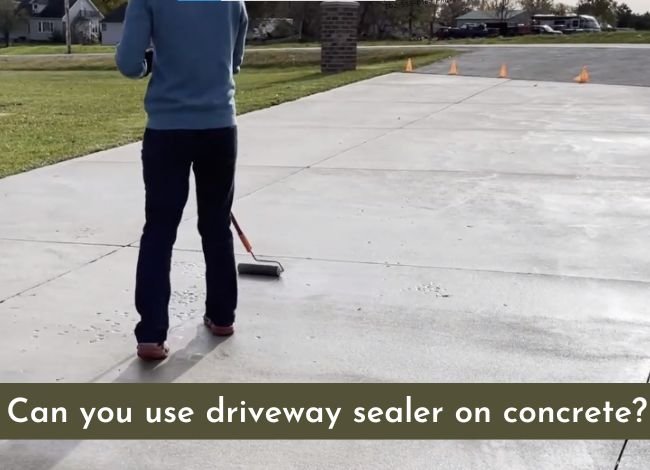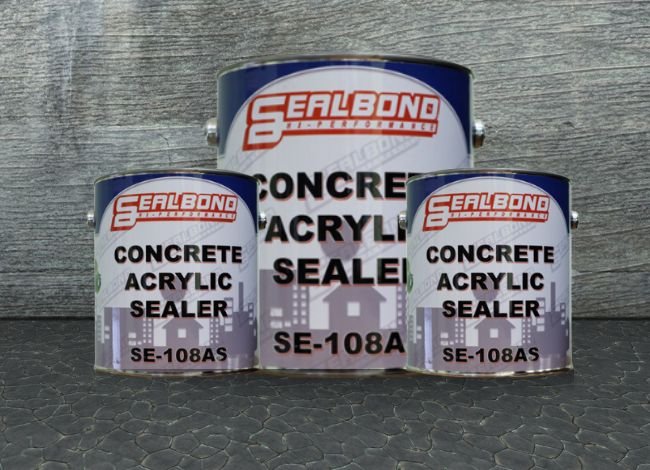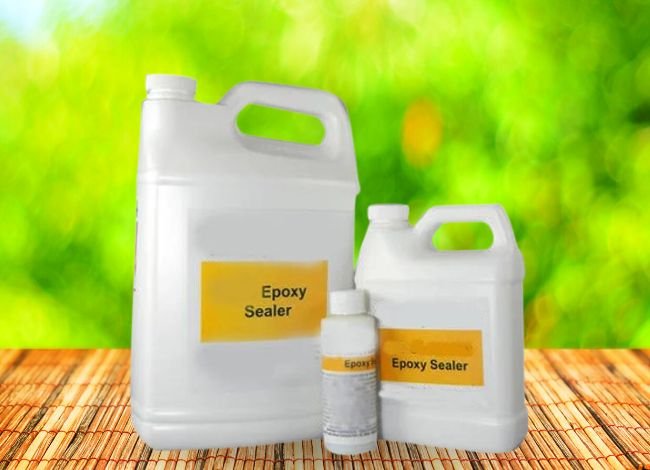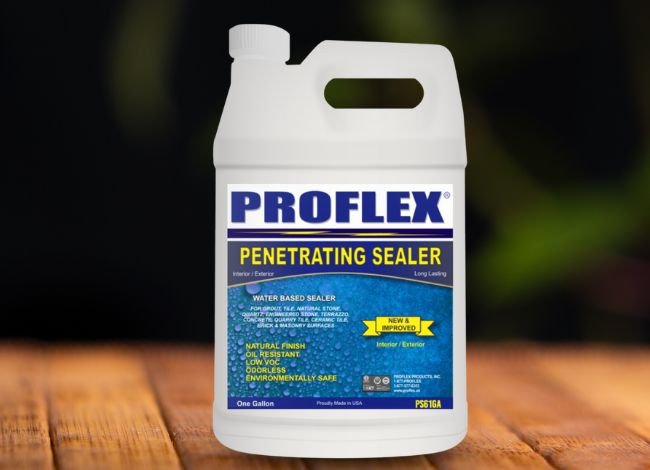Last Updated on January 21, 2023
 Many driveway users have been confused about applying sealer to concrete. Yes, using driveway sealer on concrete is possible. Moreover, there are also several concrete driveway sealers. In this article, we will talk about them.
Many driveway users have been confused about applying sealer to concrete. Yes, using driveway sealer on concrete is possible. Moreover, there are also several concrete driveway sealers. In this article, we will talk about them.
Types of sealers for sealing concrete
Mainly there are three types of sealers for sealing concrete. Epoxy or polyurethane sealers, which are very costly, acrylic resin-based sealers, and penetrating sealers.
Acrylic sealers
These types of sealers are the best and most popular. You can use acrylic sealers if you want to use the best-performing sealer on concrete.
Concrete is one of the stiffest materials and needs a stiff sealer too. So acrylic is perfect because it has a rigid structure. When the acrylic sealer dries, it becomes so hard that it can easily protect the outside of the concrete. So, an acrylic sealer is an excellent coating.
The best thing about acrylic sealers is that they are cost-effective. So, you can get more value for your money because you are getting better performance at the same cost by using an acrylic sealer.
Epoxy sealers
These sealers are comparatively higher in cost. But, unfortunately, epoxy sealers are not better than acrylic sealers.
The thicker and slipperier layer made with epoxy sealer is problematic to use. Moreover, this sealer prevents the concrete from breathing, so the white haze can form easily between the concrete and the sealer.
It is better to avoid epoxy sealers and choose acrylic sealers. The second one will give you more services and save you money.
Penetrating sealer
There are some specialty resins, such as silicones, siloxanes, silanes, etc. The penetrating sealer is made of these types of resins, and they are suitable for preventing stains and other unwanted strikes. Moreover, the penetrating sealer prevents water, oil, and other elements from entering the concrete. So it makes the concrete more durable.
Advantages of sealing a concrete driveway
Every driveway user wants to have a standard and durable driveway. So, a concrete driveway can be suitable for users who want to pay more and get more service.
But what is the need for using a sealer on the driveway if the concrete is such a rigid material?
Repellent to water and dirt
Water cannot damage a concrete surface quickly. But if you use a water and dirt coating on the concrete surface, it may last for more time. The sealer prevents water and dirt, so it is very friendly to concrete construction.
This feature can also be considered a “rain protector” for concrete. But there is one rule to remember: do not make the driveway or seal it during rain; instead, check the weather forecast and give the structure at least 8 hours to dry.
Protection against frost
The freezing effect of frost can badly hamper the condition of the concrete. Everyone knows that concrete is very powerful for making strong and rigid construction. But the cold weather, snowfall, and frost can decrease the longevity of a concrete driveway. So, if you make the sealer, you can save the driveway significantly if you live in a cold area.
Protection against the ultraviolet rays of the sun
UV rays from the sun affect concrete. Many people are perplexed by the slow process, but getting exposed to UV rays at random is a significant cause of concrete construction damage.
You can keep your concrete driveway safe from UV rays with a sealer. Therefore, your sealer will have more longevity and become more worthy of money.
Process of sealing a concrete driveway
Sealing a concrete driveway is not a hard task. You just have to follow the rules below and seal the driveway easily.
-
Step 01: Select the time
Winter rains are the worst time for sealing a driveway. In this season, the sunlight cannot come through properly, and the driveway sealer takes a long time to dry. So, you should always try to seal your driveway in the summer.
-
Step 02: Prepare the driveway
Now, wash the driveway with water and clean the entire surface. If any speck of dirt remains on the driveway, it may go under the sealer and reduce the sealing standard.
Use detergent to remove all dirt specks from the sealed surface. You can use a pressure washer to wash the driveway quickly. Now, dry it and prepare the driveway for sealing properly.
-
Step 03: Fill the small holes
Some small holes may be found on the driveway, which is caused by any unwanted friction. So, you must fill them carefully with a cement mixture; otherwise, the sealing process will go bad.
-
Step 4: Apply sealer
Now, it is time to do the crucial task. Make a sealer mix by following the manufacturer’s guidelines. Now, apply the sealer mix to the driveway in a sufficient amount. Moreover, you must apply the sealer to the road so that no part of the driveway looks patchy.
-
Step 05: Let the driveway dry
You should not drive your vehicle onto the driveway for at least 24 to 48 hours. At this time, the sealer should be dry and also appropriate for use. Otherwise, the footprint of your vehicle’s wheels will leave a bad mark on the driveway.
Rain can also damage the sealer, but it will not be an issue for you because you started the process according to the weather update. You can also use a rain cover to protest a slight rain if it comes suddenly.
Final Verdict
A driveway is a long-term project. Without proper care, it may go bad and cause damage soon. Although a concrete driveway is different and better than many others, you still have to seal it for better safety. However, by making a good sealer, you can easily protect your concrete driveway from UV rays, water, frost, and anything else.
